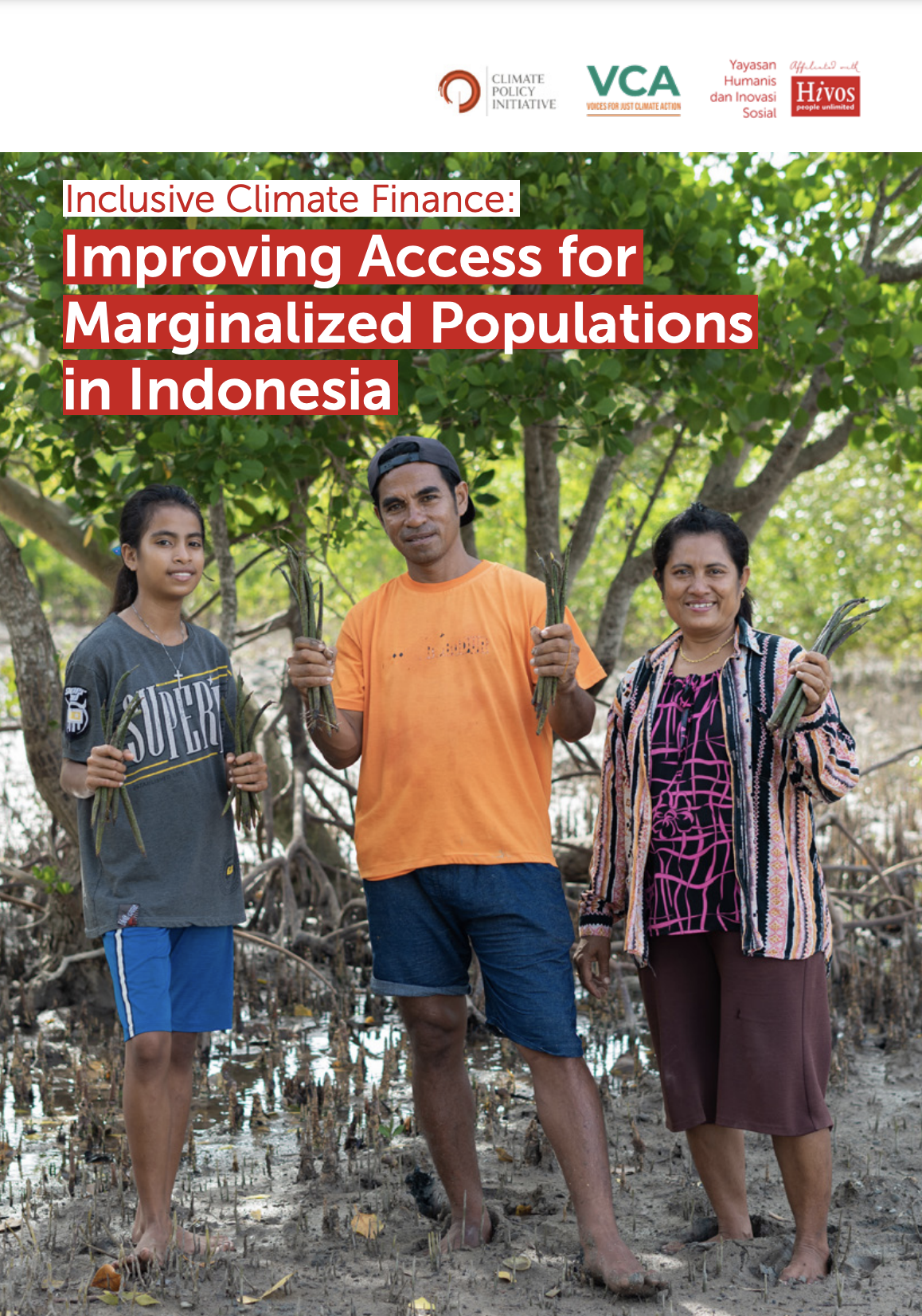
Climate Justice | November 15, 2023
Inclusive Climate Finance : Improving Access for Marginalized Populations in Indonesia
Humanis Foundation
Being one of the largest archipelagic countries of the world, Indonesia is prone to rising sea levels and other climate-related disasters, exposing the marginalized groups living near high climate risk areas to physical harm. Moreover, the economic activities of marginalized communities are mainly based in the agriculture and fisheries sectors—both highly dependent on climate patterns. As the phenomenon of global warming is most felt at the local level, access to climate finance must be significantly improved to be equitable and inclusive — especially for these vulnerable and marginalized communities. Unfortunately, this is hindered by Indonesia’s top-down climate finance approach that works through bilateral and multilateral cooperation, tending to place the financiers’ agenda above local needs. This Report on inclusive climate finance aims to assess the current climate finance landscape in Indonesia and explore possible ways in which climate finance can be mobilized to target the marginalized populations. The analysis herein focuses on assessing financing solutions in the three major funding sources—public, private, and philanthropy—along with recommendations of potential enablers in order to mobilize multiple fund sources and create impacts at scale.

